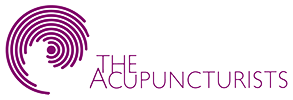
Acupuncture for Eczema: An Alternative Approach to Managing Symptoms
If you suffer with eczema, you’ll know how painful and uncomfortable it can be. At its mildest, it’s characterised by itchy, inflamed skin whose effects can range from irritating to unbearable.
At worst, the affected skin becomes severely inflamed, resulting in severe pain and discomfort that the various over-the-counter creams and moisturisers that are available can barely touch.
Medicated lotions and medications can go a long way to reducing inflammation and swelling, but ultimately the cause of eczema is often down to either external or psychological factors, such as:
- Allergens (e.g., certain types of fabric, such as wool, contact with irritants or chemicals such as soaps, chlorine, detergents, contact with certain skin care products, makeup, or perfume, or pollutants such as smoke – including cigarette smoke)
- Climate/temperature (such as low humidity or dry weather, hot or cold temperatures, etc.)
- Mental health issues (e.g., stress, anxiety, or depression)
- General health issues (for example, infections, including colds, flus, and bacterial skin infections such as Staphylococcus aureus)
Because conventional medical treatments such as topical creams, moisturizers, and oral medications are widely used to manage eczema symptoms rather than causes, many people turn to alternative therapies like acupuncture for relief.
Acupuncture is an ancient form of Traditional Chinese Medicine (TCM) that involves the insertion of thin needles into specific points on the body. These points, known as acupoints, are believed to be connected through pathways called meridians, which regulate the flow of vital energy known as “Qi” (pronounced “chee”).
According to TCM theory, disruptions in the flow of Qi can lead to various health conditions, including skin disorders like eczema.
The potential benefits of acupuncture for eczema include:
Symptom Relief: Acupuncture stimulates the body’s natural healing processes and promotes better circulation. This can help reduce inflammation, itching, and discomfort associated with eczema flare-ups.
Stress Reduction: Stress is known to exacerbate eczema symptoms. Acupuncture is known to have a calming effect on the nervous system, helping to reduce stress and potentially minimise the impact of stress on eczema.
Immune System Regulation: Acupuncture helps to regulate the immune system’s response, which is beneficial for managing the underlying causes of eczema.
There are some distinct benefits for using acupuncture as a new approach to managing your eczema if you haven’t tried it before.
Acupuncture is an holistic treatment, considering the individual as a whole and addressing not only the physical symptoms, but also potential underlying imbalances that may contribute to eczema.
I’ve written recently about the myths that surround acupuncture, the chief one being the fact that it’s painful. Let’s be clear about this: done professionally, by a qualified acupuncturist, the treatment should not be painful at all.
In fact, many of my patients say they find it incredibly relaxing and soothing. The most common sensation when receiving acupuncture therapy is a tingling feeling, while others report a feeling of slight dull ‘heavoiness’ which is also totally painless.
And because it’s only minimally invasive, acupuncture is generally considered safe when performed by a trained and licensed practitioner, making it an appealing option for those seeking non-pharmacological treatments.
There are increasing numbers of studies that show acupuncture achieves promising long-term results in the treatment of eczema. Although as with all medical treatments, there can be no guarantees.
If you’re considering acupuncture as a complementary treatment for eczema, it’s essential to:
Consult a healthcare professional: Before trying acupuncture, speak with your dermatologist or healthcare provider. They can help you determine if acupuncture is a suitable option for your specific condition and may also be able to guide you in finding a qualified practitioner.
Find a qualified practitioner: Look for a licensed acupuncturist with experience in treating skin conditions. They should have a good understanding of Traditional Chinese Medicine and its application for eczema.
Set realistic expectations: Acupuncture is not a guaranteed cure for eczema. While it may provide relief for some individuals, results can vary, and it’s important to have realistic expectations.
Combine with conventional treatments: Acupuncture should not replace conventional medical treatments for eczema. It can be used as a complementary approach alongside prescribed treatments.
Acupuncture is an alternative approach that many people who experience severe eczema have successfully explored to manage symptoms and potentially improve their quality of life.
Consulting with a healthcare professional and a licensed acupuncturist can help you make an informed decision about incorporating acupuncture into your eczema management plan.
If you’re interested in finding out more about how eczema can help you to overcome the symptoms of eczema and encourage an improvement in the underlying causes of the condition, why not get in touch with us for an informal and confidential chat?
